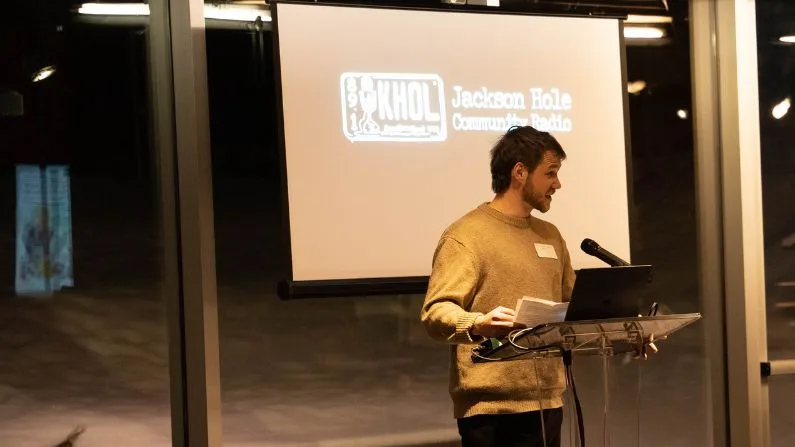Make our newscast part of your daily listening routine. Subscribe on Spotify (or wherever you listen to podcasts).
Small, community-run radio stations across the Rocky Mountain West could face severe setbacks if Congress follows through on a White House proposal to rescind $1.1 billion from the Corporation for Public Broadcasting (CPB) — effectively eliminating two years of federal funding.
The White House has yet to issue direction, and the earliest it could happen is on April 28 when Congress reconvenes from recess. That would open a 45-day period to decide on a clawback of funds stations already have.
The Trump administration appears to be taking aim at National Public Radio (NPR) and Public Broadcasting Service (PBS) for what it calls “political bias.”
“For years, American taxpayers have been on the hook for subsidizing National Public Radio and the Public Broadcasting Service, which spread radical, woke propaganda disguised as ‘news,’” an April 14 White House memo reads.
Only 1% of NPR’s budget is federal funding, though, so cuts would disproportionately impact smaller and rural stations, some of which are not NPR affiliates, but still receive federal dollars. That’s according to Breeze Richardson, executive director of Aspen Public Radio, where CPB makes up 10% of the budget.
“That rescission order, if passed by Congress, is going to take back appropriated funds from hundreds of local radio stations and television stations all across the country,” Richardson said. For some smaller stations, CPB makes up a higher portion of annual budgets, she said. KHOL is not an NPR affiliate and receives about 25% of its budget from CPB. Richardson, also the president of the Rocky Mountain Community Radio (RMCR) network, said that’s on the high end for the 20-station partnership.
In many parts of the Rocky Mountain West, public radio stations are the only consistent source of local news, music community, and emergency alerts. Winding canyons and “dead zones” familiar residents in Wyoming, Colorado, Utah and New Mexico mean limited broadband access and unreliable cell coverage. CPB funding helps ensure radio stations can keep operating despite small populations and limited advertising markets.
“When power is out, when cell service is down, it’s FM radio that’s going to keep this community safe,” Richardson said. “And all politics aside, that’s why there has been bipartisan support for public broadcasting.”
KHOL, a member of RMCR, is launching a campaign encouraging listeners to contact their congressional representatives.
Emily Cohen, executive director of KHOL said CPB funding has been a “game-changer” since first allocated to the station in 2022.
“Losing these funds would greatly set us back,” she said.
Richardson has also been urging lawmakers, industry partners, and listeners to defend public radio, she said.
“You don’t need to be an expert,” she said. “You just need to say that public radio is important to you and the service you receive is valuable.”






